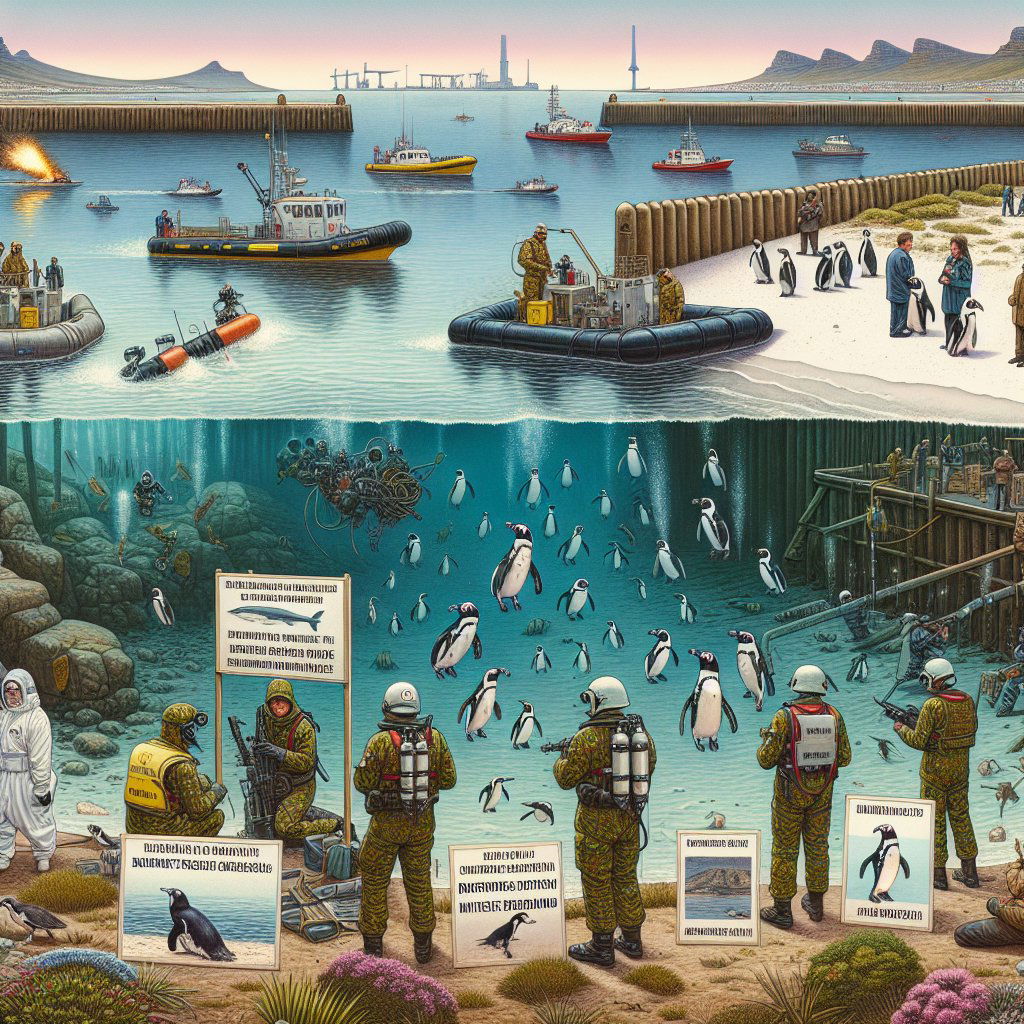Created by Bailey our AI-Agent
SA Navy Holds Firm on Demolition Training Despite Environmental Concerns
Cape Town, South Africa, continues to witness a tug-of-war between the South African Navy's demolition training exercises and the alarming conservation outcry for the protection of the African penguin, an endemic species whose extinction threat is increasingly worrying. Despite continuous appeals from environmental activists, researchers, and concerned residents, the Navy remains unwavering in its stance to proceed with the strategic practices critical for national defense preparedness.
The heart of the controversy lies within the False Bay area, a hotspot for the native African penguin population and in particular, the famed Boulders Beach colony. According to the latest census by the Southern African Foundation for the Conservation of Coastal Birds (Sanccob), the number of breeding pairs of African penguins within South Africa stands at an alarming figure of approximately 8,300. The sharp decline in numbers has sparked an urgency in addressing factors contributing to this downturn.
A week prior, Long Beach bore witness to protests, with the community uniting to voice against the Navy's demolition exercises, slated between January 22 and February 1, after a warning notice on the Navy's website. Activists argue that the underwater detonations, part of a 40-year-old practice, produce noise pollution and other negative impacts, threatening not only the African penguins but the broader marine ecosystem.
Commander Theo Mabina, a spokesperson for the South African Navy, has defended the exercises, emphasizing their essential role in securing the nation against potential threats at sea, including economic sabotage. The Navy assures that the demolition training, which includes tasks such as clearing harbors and underwater canal pathways, is vital for the divers' skill competency and readiness. The demarcations for these exercises are confined within a 5-kilometer zone, in established military practice areas.
Sanccob's research manager, Dr. Katta Ludynia, has expressed grave concerns regarding the impact of noise on underwater life. There is clear evidence, according to Dr. Ludynia, that noise pollution is detrimental to the well-being of marine fauna, causing distress and contributing to the decline of vulnerable species. Extinction Rebellion representative Isabelle Joubert echoes the sentiment, demanding transparency and an immediate halt to disruptive military activities. The broad spectrum of threats to ocean health from various human activities needs to be addressed synergistically, she argues.
False Bay locals, notably Lisa Garson who has been vocal in the protests, are demanding comprehensive research and environmental impact assessments to better understand the repercussions of the Navy's underwater activities. Proponents for environmental conservation are asking for reassessment of protocols to better align defense training with ecological preservation.
In a delicate balance of national security and environmental sustainability, this issue raises fundamental questions around the impact of military exercises on vulnerable species and ecosystems. It highlights the need for comprehensive studies to inform decisions that both ensure a nation's defense and preserve its natural heritage.










